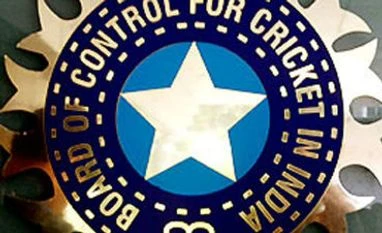Big-three model
Battles over the financial model of ICC events have been drawn out over the past few years, starting with the rise of Shashank Manohar as the governing body's chairman. Manohar's elevation followed the exit of his predecessor and rival N Srinivasan, widely considered the Big Three's chief architect. Manohar stunned the cricket world by stating his intent to resign earlier this year, but was cajoled into staying on until the ICC annual conference in June.
The new financial model will do away with the resolutions passed in 2014 which allocated disproportionately high resources to the BCCI, Cricket Australia (CA) and the England and Wales Cricket Board (ECB).
New financial model
According to the new model, based on current forecasted revenues and costs, the BCCI will receive $293 million across the next eight-year cycle, the ECB will get $143 million, Zimbabwe Cricket $94 million and the remaining seven full members $132 million each.
The BCCI is the biggest loser under the new system. The Indian board would get around $440 million under the previous model which favoured the three biggest powers of world cricket — India, Australia and England.
The ECB's share has reduced marginally from the previous amount of around $150 million.
Cricket Australia too will receive an amount that is only slightly less than what it was getting previously. Its share is now in line with the allocations to South Africa, Pakistan, New Zealand, Sri Lanka, Bangladesh and the West Indies.
Associate members will receive funding of $280 million. This model was passed by a margin of 13 votes to one.
A revised constitution
Apart from this, an agreement on a new Constitution to be put before the ICC full council was also reached.
The revised Constitution was approved by 12 votes to two. This takes into account the ICC board's feedback following extensive discussion at the February meeting and further inputs from the working group.
It will now be presented to the ICC Full Council in June for adoption.
The constitutional changes include:
1. Opening a pathway to include additional full members in the future subject to meeting membership criteria.
2. Removing the Affiliate level of membership so there are only two levels; full member and associate member.
3. Introducing an independent female director to the board.
4. Introducing membership criteria and forming a Membership Committee to consider membership applications.
5. Introducing a deputy chairman of the board who will be a sitting director elected by the board to stand in for the chairman in the event that he or she is unable to fulfil their duties.
7. Entitling all members to attend the Annual General Meeting
BCCI's paticipation in Champions Trophy
Reaction to the game's new landscape is likely to be varied. In particular, the BCCI's response has heated up the issue even more. It has not named the team for the Champions Trophy as yet, and is likely to defer the announcement till May 7. The possibility of a boycott has not been summarily dismissed but is remote, given that the Committee of Administration (CoA) has veto rights on any decision BCCI makes. In any case, Vinod Rai, head of the Supreme Court-nominated Committee of Administrators (CoA), has played down the possibility of India, the holders, boycotting the premier tournament.
Further, any possibility of not sending a team would not go down well with the cricket-loving public of India.
To read the full story, Subscribe Now at just Rs 249 a month
Already a subscriber? Log in
Subscribe To BS Premium
₹249
Renews automatically
₹1699₹1999
Opt for auto renewal and save Rs. 300 Renews automatically
₹1999
What you get on BS Premium?
-
Unlock 30+ premium stories daily hand-picked by our editors, across devices on browser and app.
-
Pick your 5 favourite companies, get a daily email with all news updates on them.
Full access to our intuitive epaper - clip, save, share articles from any device; newspaper archives from 2006.
Preferential invites to Business Standard events.
Curated newsletters on markets, personal finance, policy & politics, start-ups, technology, and more.
Need More Information - write to us at assist@bsmail.in
)